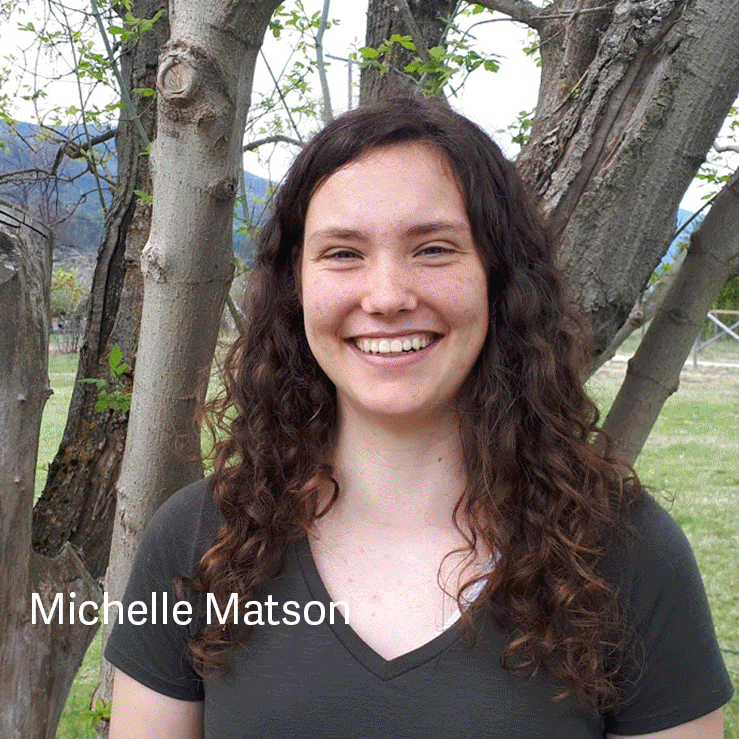
Nearly two dozen TRU undergraduate students will be supported by scholarships this summer, allowing them to conduct independent research projects.
Twenty-three students have been awarded Undergraduate Research Experience Award Project (UREAP) scholarships, which are valued at $6,000 each, plus up to $1,000 in operating grant funding, making for an institutional investment of approximately $160,000. The UREAP scholarships, which have been awarded since 2003, and they are unique in that they move students beyond the role of Undergraduate Research Assistant, giving them the opportunity to be the principle investigators of their own unique projects.
How does physical distancing impact research?
“Amidst the uncertainties that are present as a result of physical distancing measures taken to mitigate the spread of COVID-19, TRU continues to support undergraduate research, and we continue to ignite students’ excitement in their fields of study so that they can develop new, vital skills,” said Sukh Heer Matonovich, Associate Director, Student Research and Public Engagement.
All UREAP recipients have worked with a faculty mentor to create a plan that allows them to conduct their research while also adhering to physical distancing guidelines. Some students will still be able to conduct their research in labs on campus, while others have been set up for success at home.
“This really speaks to the capacity at TRU and the dedication of faculty who support our undergraduate researchers,” said Heer Matonovich. “Students are engaging in meaningful inquiry whether they are at home or on campus, and with the guidance of their mentors, real transformational learning is taking place, and I think we really need to celebrate that.”
What are they researching?
Students from all disciplines will spend the summer (May through August) researching topics as wide-ranging as the effect of marital status on physical and mental health, to snake fencing.
To qualify for a UREAP, students must have completed at least 60 credits and have a minimum GPA of 3.2. Each student is mentored through a project by a faculty supervisor.
2020 UREAP recipients
- Aaron Veale, “Is island life turning birds into giants? A worldwide assessment of Foster’s Rule across all birds.”
- Aina Roenningen, “Investigating the relationship between anxiety and cognition using eye-tracking tasks.”
- Amie Smith, “Increasing Cognitive Load to Examine the Modulating effects of Cognitive Function and Anxiety on Performance.”
- Clarence Todd, “Eukaryotic pan-genome construction using iterative assembly from sequencing reads.”
- Devon de Vries, “Assessing the validity and accuracy of a deep neural network software to quantify spontaneous movements in young infants.”
- Elvira Mukharryamova, “In pursuit of phase separation.”
- Jared Sonnleitner, “Tracking migratory timing and routes of Eastern, Western and Mountain Bluebirds from 2009 to 2019 data using eBird citizen science”
- Joshua McBratney-Mullaney, “The impacts of meditation on anxiety and cognitive performance”
- Karizza Catenza, “Quantitative determination of sialylated oligosaccharides using large volume sample stacking – capillary electrophoresis.”
- Keegan Lawrence, “The effects of marital status on physical and mental health in Canada.”
- Kellie Sych, “Biomonitoring of mosses around Highland Valley Copper Mine.”
- Kyle Hutton, “The effect of inactivity on insulin resistance and capillary filtration.”
- Michelle Matson, “Autecology of Western Yellow-Bellied Racers (Coluber constrictor mormon).”
- Nicki Wolfenden, “A better understanding of risky sexual behaviours and on-campus resource use at Thompson Rivers University.”
- Phakchanok Sapphansaen, “Examining how inactivity alters circulating microvesicles and impacts the proangiogenic potential of endothelial cells.”
- Sahithi Yarlagadda, “Logistics service quality and customer satisfaction in international courier shipments.”
- Sarah Ewart, “Canada’s duty to uphold the rights of Canadian human rights defenders operating internationally, under the Charter of Rights and Freedoms.”
- Shayleen Gray, “Artificial refugia and its effectiveness on snake survival along exclusion fencing in British Columbia, Canada.”
- Sophie Barnes, “Analysis of the sexual assault services offered for survivors in British Columbia.”
- Stefano Stamato, “Social network analysis of transshipment in illegal fishing using AIS data.”
- Sydney Johnstone, “Competition for resource allocation on an audio-visual and working memory task.”
- Youssef Ekladuce, “Development of complex goal-directed actions in human children: The role of dorsal and ventral stream interactions.”
- Zakhary Barone, “Determination of pKa values of selected potentially significant bisphenols by capillary electrophoresis.”

